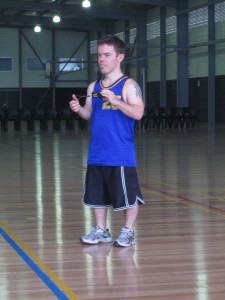Developing empathy for difference
‘Mummy, why is that man so short?’
‘Because he didn’t eat his vegetables when he was a kid.’
The short man who overheard this conversation was Jonathan Tripp. He was born with a condition of dwarfism. While he could see the funny side of the mother’s reaction, it was just another incident in which an able-bodied, average-sized person found him amusing. This situation raises the question: how should children be introduced to the fact that some people are born and live with a disability? And how can parents and teachers develop empathy for them in the children under their charge?
I became immersed in the topic of dwarfism in 2012 when I wrote a book about it. Little People Big Lives is a nonfiction text that profiles 12 people who will never grow taller than 1.45 metres – the official definition of dwarfism as published by the World Health Organization (WHO). I attended a range of events and activities organised for and by short-statured people (as they are officially known in Australia) or little people as they are termed in the US and UK. Most of the people I interviewed loved sport of all kinds and their favourite way to participate was in events catering specifically for short-statured people.
When I watched the Melbourne basketball team (the sSpitfires) play against a team of adolescent boys, I was struck by the unfairness of this match. Because there are so few short-statured basketball players (only one in 20,000 babies are born with dwarfism) the only time they can complete against each other is in national and international sporting events. Try as I might, I could not put myself in their shoes. Empathy for someone whose life is very different to our own is difficult to conjure unless we spend considerable time and effort developing it. The motivation for writing my next book came from just such an endeavour. In My World contains two chapter books for children aged seven plus. The main character in each story lives with a disability. I hope it will go some way to raising awareness and preventing the type of behaviour that, unfortunately, we have come to expect.
Leave a Reply